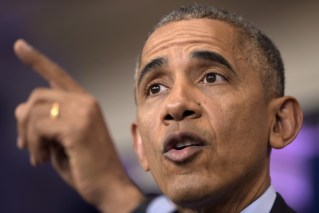It’s time to see Medicare as an investment


Mecicare treats national productivity. Photo:AAP
Labor’s pledge to re-index Medicare rebate payments to inflation is being discussed virtually everywhere as a ‘cost’ due to the fact that it will put a $2.4 billion dent in the budget over four years.
Or as one news website howled, “taxpayers will be hit an extra $12.2 billion over a decade to cover the plan to increase the Medicare Benefits Schedule every year from January 1”.
May the journalist who wrote that line never work as an accountant. That “hit” will also save taxpayers billions in out-of-pocket expenses. It is shifting the cost of healthcare, not increasing it.
• Super fund returns edge higher
• Medicare an ‘unfunded promise’
• Border force under investigation
It has become a bad habit of our national debate to continually refer to the cost of public health, without mentioning the impressive return we get on that investment.

Medicare treats national productivity. Photo: AAP
OECD comparisons of developed nations constantly put Australia’s healthcare system ahead of the pack both in terms of outcomes and cost effectiveness.
But you wouldn’t know it when national debate, thoroughly infected as it is with neo-liberal pseudo-economics, so steadfastly focuses on an ‘explosion in costs’ but failing to see the explosion in good health.
The out-of-pocket explosion
To put Medicare in context, the Australian Bureau of Statistics notes: “The private health sector funds around a third of all health care in Australia, with out-of-pocket expenditure the major component, funding 19 per cent of total health expenditure.”
Or, as the Australian Nursing and Midwifery Federation (ANMF) puts it: “Governments contribute 68 per cent of total health funding (compared to the OECD average of 72 per cent). Private insurance accounts for just over 8 per cent of total health funding. Just over 20 per cent of total health funding is being paid directly by individuals – this is the fastest growing area of all health expenditure.”
In 2013, when the Labor government froze Medicare rebates based on the time-honoured principle of budget desperation, increased pressure was put on GPs and other medical practitioners to pass through more of their costs as out-of-pocket charges.
That “temporary” freeze was extended for two years by Treasurer Scott Morrison in this year’s federal budget – again, based on budget desperation. It is now left to Health Minister Sussan Ley to defend that decision, in the face of overwhelming opposition from medical practitioners.

Prime Minister Turnbull with Health Minister Sussan Ley. Photo: AAP
What both decisions failed to account for is the overall economic costs of such a move.
In an era of flat wages and growing under-employment, there is a growing tendency at the lower end of the socio-economic spectrum to skip medical attention altogether.
The ANMF notes: “Cost is already known to be a significant disincentive for some Australians in seeking health care.”
The ABS reported that in 2013-14 almost 5 per cent of Australians who needed to see a GP delayed or did not go because of the cost, one in 12 (7.9 per cent) who needed to see a medical specialist delayed or did not go because of the cost and just over 20 per cent did not go to the dentist because of the cost.
“The figures are even higher in relation to medicines. The COAG Reform Council reported in 2014 that 8.5 per cent of people in 2012-13 delayed or did not have prescriptions filled due to the cost.”
Counting the cost
Skipping medical attention in that way has two economic impacts – one public, one private.
The first is to kick medical problems down the road, where they are more expensive to treat.
As Shadow Health Minister Catherine King told the ABC on Thursday: “We want people to go to what is in fact, the cheapest and most efficient part of our system, your GP … if we don’t do that, people end up in the more expensive part of a system, the acute system.”

Shadow Health Minister Catherine King. Photo: AAP
The second impact is felt by businesses – especially those employing low- or semi-skilled workers on the lower pay scales.
Peter Strong, a former small business owner and now chief executive of the Council of Small Business of Australia, says that workers who are balking at visiting a doctor or who can’t fund the gap payments on medical prescriptions “will be a bigger cost to the economy in the long run”.
“If a worker is trying to just get by with, say, chronic pain they’re not going to be very productive,” he told The New Daily.
Not only does the national economy need those people to be in work, but it needs them to be productive and not taking frequent sick days when they get there.
But this equation won’t be understood while national debate is dominated by public ‘cost’ of providing healthcare, without acknowledging to cost to the entire economy of discouraging working Australians from seeking it out.







